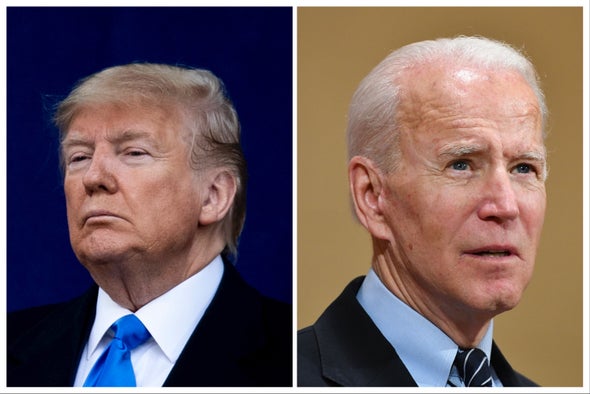India needs to sign BECA (the final foundation agreement) and abandon talk of swinging this way and that.
November 3, 2020 is when US citizens will either elect President Donald J. Trump to a second term or give the baton to Joe Biden. Both have strong Vice-Presidential candidates in their corner. Mike Pence has refused to take the bait thrown relentlessly at him to “become independent of Trump” and distance himself from the individual who is his only boss, now that the politician from Indiana was elected Vice-President of the US on 8 November 2016. Those who know Pence say that he is an individual who has clear views on the challenges facing the US, both internally and from outside. Some of his speeches have become fixtures in geopolitics classrooms, such as his speech at the Hudson Institute about China Recent presentations made by the US Secretary of State, the Defense Secretary and the National Security Advisor about China make it clear that the Trump White House has aligned itself to the reality of the Indo-Pacific Century, rather than flail around believing that the Atlantic Century has continued into the present era, the way many of Joe Biden’s foreign policy team do. However, the fact that Joe Biden came on the side of Jill Biden rather than Hillary Clinton in his choice of running mate, indicates that 21st century reality is entering the thinking of the individual who is within a whisker of becoming the 46th President of the US. Unless Biden puts on a shambling performance at the Democratic Party convention or puts up a weak show against the fiercely combative Trump in the debates, the odds favour him, especially now that he has an attractive and articulate Vice-Presidential choice, who represents the US as it is and not the country as it was until the close of the 1990s. Barack Obama’s upset win in (almost all white) Iowa over Hillary Clinton showed that the people of what is still the world’s most consequential nation are looking beyond skin colour in registering their preferences. This trend has been visible in the case of Indian-Americans for more than two decades. Several have more of a tan than do many African-Americans, and yet do very well in universities and corporates across the US, although not half as much in Europe, which in the EU represents the power of the Ethnic Idea in practice, although not in precept. Of course, the very EU (with its diminishing native population) that has made it so difficult for talented sons and daughters from India to settle there, is now getting flooded with those escaping from the hell that Wahhabis have made several countries in North Africa and parts of Asia. This is similar to what is taking place in parts of Siberia, which are rapidly becoming Chinese-speaking territories that have far greater affinity with Beijing than Moscow.
During the 2016 US Presidential elections, some Ukrainians of Russian extraction worked to defeat Hillary Clinton. They did so because the then Secretary of State used to make a habit of engineering regime change, especially in East Europe. She substantially assisted the efforts of ethnic Ukrainian nationalists to marginalise ethnic Russians in Ukraine, a policy that succeeded in creating what is now a country divided against itself. This interference by Hillary is what led Russian Ukrainians to target her in 2016, a process that the Moscow Centre may not have been oblivious of, but probably did not initiate. As in 2016 and again in 2020, Moscow Centre would like to see Donald Trump get elected, in part because the leverage of Russia with China grows, the more tension there is between Beijing and Washington. There are several pro-China elements embedded in the Biden campaign, and although inspired reports have appeared of Xi Jinping preferring Trump over Biden, this is disinformation. As for India, both Defense Secretary Mark Esper as well as Secretary of State Mike Pompeo have adopted a friendly stance, in contrast to Commerce Secretary Wilbur Ross and Trade Representative Robert Lighthizer, who seem not to see the difference between China and India in their treatment of both. Indeed, both Ross as well as Treasury Secretary Steven Mnuchin (despite statements to the contrary) seek in several ways to promote the interests of those in the US who have profited from making China strong. Despite the influence of the two within the Trump White House, the CCP would like to see Biden defeat Trump. As for India, the presence in the Biden campaign of some Wahhabis crossing over from the Bernie Sanders campaign has led to more than a few incomprehensible and indeed incoherent statements from Biden and Harris about India, such as the Clinton trope that the US will “ensure justice” in Kashmir, presumably by facilitating the removal of the handful of Sikhs and Hindus left in the Valley after the genocide which took place in the 1990s. Neither Biden nor Harris seems to have any concern about the fate of minorities in Pakistan, for some reason.
India needs to sign BECA (the final foundation agreement) and abandon talk of swinging this way and that. Instead, what is needed is to adopt a firm stance towards the encroachment of Indian territory by the PLA. The Quad needs to become an actual alliance rather than just a photo op, and in the UNSC, India needs to call out those who are conniving at the occupation of Indian territory and seeking to cause a diversion by blaming the victim of their aggression. The Five Eyes need to expand to six, with the inclusion of India. Once such a transformation takes place, the India-phobic elements in the Beltway will lose their clout because of the need for the two biggest democracies to act together in the face of the common challenge of extremist violence and authoritarian takeover of territory.

